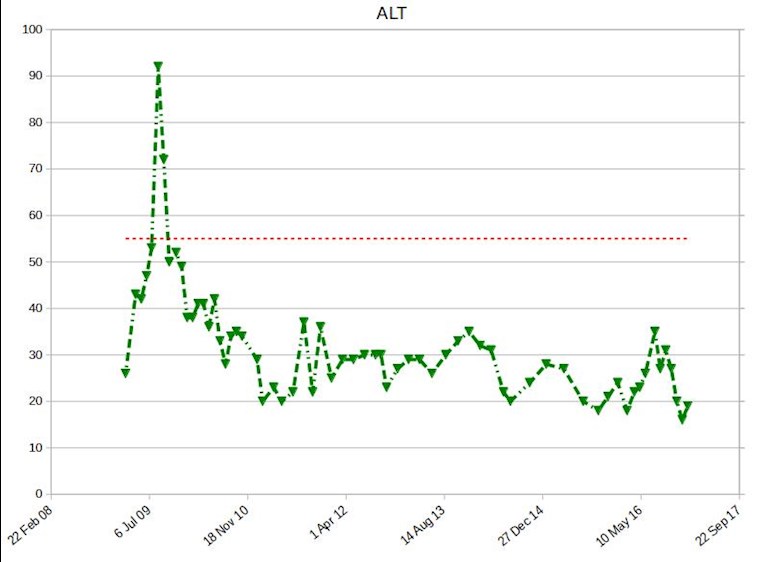...the common perception that natural is safer didn't pan out in the study of the Italian Surveillance System of Natural Health Products, similar to the findings of a prior French government analysis of adverse event reports it received on red yeast rice.
:
Red yeast rice supplements, popular for lipid lowering, may have liver and muscle risks "highly similar to that of synthetic statins," according to analysis of an Italian surveillance program for natural health remedies -- most likely because its active ingredient is an actual statin. medpagetoday.com/Cardiology...
Note that of the 52 reports on 55 adverse events on those consuming red yeast rice, 13 required hospitalisation!
I've posted this because lately there has been an increase in questions regarding supplements and alternative treatments. If we are taking anything to improve our health, we are seeking a pharmacological effect - the effect of a chemical on a living system. From: pharmacorama.com/en/Section... A drug can be defined like any compound introduced into a living organism, animal or human, in order to prevent or to cure a disease, or only to attenuate symptoms, or to establish a diagnosis.
A drug is not a mysterious or a magic object. It is a well defined molecule which, according to its structure, interacts with a target of our body or that of a microorganism and causes effects related to the modification of this target. Its beneficial effects, its clinical uses and often its adverse effects result from this interaction. A drug is a molecule of which the beneficial effects appeared sufficiently important compared to the adverse effects for obtaining a new drug approval.
And from the section 'Steps drug discovery development': pharmacorama.com/en/Section...
Initially, a drug was a complex mixture, of animal or vegetable origin, badly defined and containing a very great number of compounds. Later a drug was a purified compound obtained by extraction either of vegetable origin, like digitalin, or of animal origin, like insulin. (My emphasis)
We might like to complain about the high cost of drugs approved for sale by the FDA (or similar authority in our country), but a significant part of that cost goes to cover mandatory clinical trials to prove a drug's efficiency and during which side effects are recorded and subsequently published. Supplements don't go through that testing process and it is very hard to get hard evidence on their effectiveness or otherwise on CLL patients.
Please note the following clauses in our community's Guidelines
28. CLL Support Association cannot be held responsible for any discussions regarding self-treatment or the outcome of any such discussions.
29. Please do not promote the use of alternative treatments.
Community Guidelines can be found here: healthunlocked.com/cllsuppo...
We need to remember that if we are taking a supplement for a pharmacological effect, we should expect similar side effects to those from a manufactured drug. If we don't experience side effects, that may be an indication that the supplement isn't actually doing anything!
If you want to take the risk associated with taking supplements, only do so after discussing with at least your doctor and if it is CLL related, with your CLL specialist, because there is no doubt that many supplements actually do have a pharmacological effect* and can interfere with other medications you are taking, including CLL treatments.
*Provided you can be sure that you are actually purchasing what the bottle claims. The lack of regulation in the supplements industry, which revenue wise is on par with pharmacology industry, is another (sad) story.
Neil
PS If you've read this far and think I'm biased against natural/alternative treatments, that's not the case. I take high doses of green tea turmeric capsules but have only done this after careful reading of the pros and cons and discussion with my medical team, plus I carefully monitor my liver and kidney function, because I've personally seen what over the counter 'health supplements' can do to my liver's health. Just after my diagnosis, I was encouraged by someone well meaning, to take over the counter products to boost my immunity. I also took high dose of green tea capsules to slow my CLL progression. You can see what happened to my ALT 'liver function test' result in the plot above, which records 8 years of my blood test data. My ALT result nearly doubled the upper normal limit of 55 and was about 4 times my normal result, but dropped back into the normal range when I stopped taking the 'immune boosting supplements' (I wasn't taking that much either) and reduced my green tea capsule dosage. (I've taken a higher dose of green tea on occasion since, with negligible effect on my ALT).
I'd strongly advise anyone against taking any supplement to boost their immune system. If the supplement works (and I expect some do), they may well boost your lymphocyte production which you don't want!
